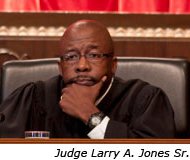9/6/2011
Ohio: No Traffic Stop for Snow-covered License PlateOhio Court of Appeals overturns a traffic stop based on a temporarily obscured license plate.

Police cannot initiate a traffic stop for a snow-covered license plate once the snow falls away from the plate, the Ohio Court of Appeals ruled Thursday. On January 29, 2010, Lakewood Police Officer William Comerford had spotted the gray 2003 Mitsubishi Eclipse belonging to Richard W. Shelton as he drove down the middle of Waterbury Road. Comerford decided to initiate a traffic stop because snow partially obscured the Mitsubishi's license plate. When Comerford approached the vehicle, he had no trouble reading the plate, either because he brushed away the snow or because the snow fell off. Waterbury Road had no lane markings and both sides of the street had large snow piles.
Shelton argued that as soon the snow fell away from his plate, there was no justification for the traffic stop that lead to his arrest for driving under the influence of alcohol (DUI). A three-judge appellate panel agreed.
"Once Comerford got out of his zone car and approached Shelton's car, he could read the license plate," Judge Larry A. Jones wrote for the court. "And although he testified that he also pulled Shelton over because he had been driving in the middle of the street, we agree with the trial court's assessment that Shelton's driving in the middle of an unmarked street during winter with snow piled on the sides of the street did not give the officer reasonable suspicion of any criminal activity."
The appellate judges chided Comerford for failing to remember whether he brushed the snow from the license plate, or the snow fell away on its own. The Fourth Amendment places the burden for establishing the need for a warrantless search and seizure upon Comerford who failed to meet the standard set by the court.
"Once he could read the license plate, he no longer had any reason to detain Shelton for an OVI investigation and should have sent him on his way," Judge O'Brien concluded. "In accord with [the 1984 Ohio Supreme Court case Ohio v.] Chatton, Comerford, as a matter of courtesy, could have explained to Shelton the reason he was initially detained, but he could not 'unite the search to this detention,' and on this record Shelton should have been free to continue on his way without any further detention or investigation. Therefore, we find that the trial court erred in denying Shelton's motion to suppress."
A copy of the ruling is available in a 110k PDF file at the source link below.


